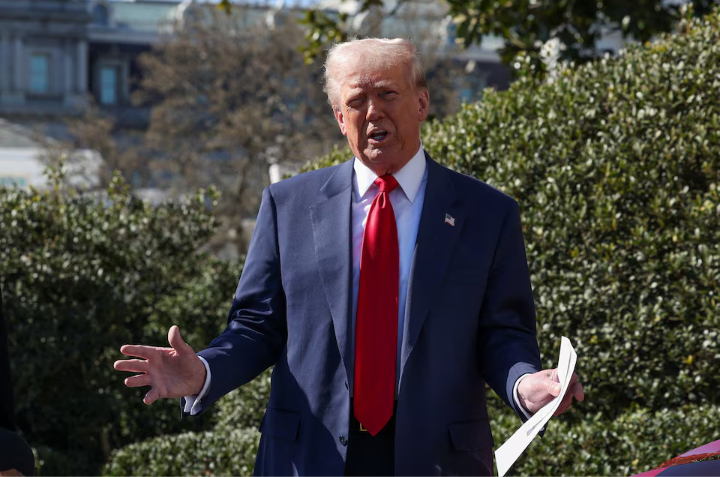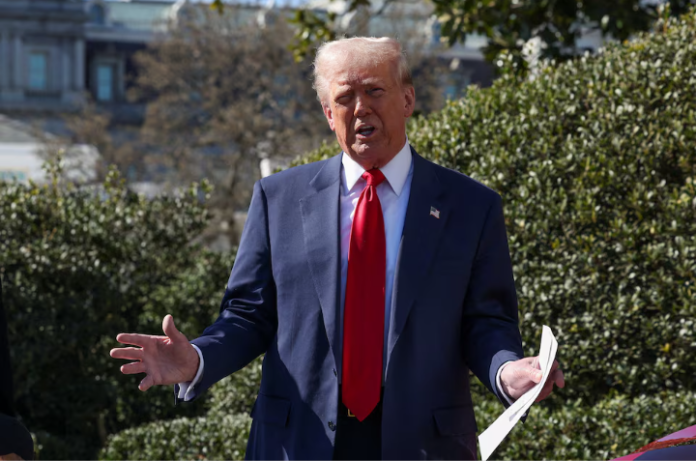A federal judge has temporarily halted former U.S. President Donald Trump’s attempt to use a rarely invoked wartime law to deport alleged members of the Venezuelan gang, Tren de Aragua. This decision, issued on Saturday, marks a significant legal challenge to Trump’s aggressive immigration policies.
Trump’s Invocation of the Alien Enemies Act
Just hours before the ruling, Trump invoked the Alien Enemies Act of 1798, declaring Tren de Aragua as a direct threat to national security. He described the group’s activities—ranging from kidnapping and extortion to organized crime and contract killings—as part of an “invasion” into the United States.
By using this act, which historically applies only in times of war, Trump aimed to bypass traditional legal processes and fast-track deportations of suspected gang members. Under his order, any Venezuelan citizen over 14 years old, present in the U.S., and linked to the gang could be apprehended and deported.
The White House released the proclamation on Saturday, though it appears Trump signed it the previous day.
Federal Judge Blocks Deportations—for Now
However, Judge James Boasberg intervened, issuing a 14-day temporary restraining order to halt the deportations. In his ruling, he noted that the Alien Enemies Act does not justify the president’s actions, as the law pertains to threats from foreign nations engaged in war—not criminal organizations.
His decision drew sharp criticism from Trump’s legal team and allies. Attorney General Pam Bondi claimed the ruling prioritizes “terrorists over the safety of Americans” and disregards the president’s authority to protect the country.
The Controversy Over the Alien Enemies Act
This law, dating back to the John Adams administration, was previously used to justify internment camps for Japanese, German, and Italian citizens during World War II. Civil rights advocates argue that reviving it now sets a dangerous precedent.
Critics, including New York Attorney General Letitia James, condemned Trump’s move as an unjust and discriminatory abuse of power. Immigration lawyer William Vasquez also pointed out that this is the first time the act has been applied against migrants from a country not at war with the U.S.
Meanwhile, the American Civil Liberties Union (ACLU), which filed the lawsuit challenging Trump’s order, argued that the government is wrongfully categorizing asylum seekers as criminals. The ACLU also confirmed that some Venezuelans misidentified as gang members had already been scheduled for deportation before the ruling halted the process.
Trump’s Immigration Crackdown and What’s Next

Since returning to office on January 20, Trump has prioritized mass deportations, vowing to remove millions of undocumented immigrants. However, his administration has struggled to execute deportations at the pace of his Democratic predecessor, Joe Biden.
Despite this, Trump has significantly ramped up enforcement efforts by:
- Deploying additional troops to the U.S.-Mexico border
- Reassigning federal agents to track down undocumented migrants
- Declaring more criminal organizations as terrorist groups
With this latest legal battle, the Biden-appointed Judge Boasberg has set the stage for a heated showdown over immigration policy. The temporary restraining order lasts for 14 days, but the White House has already filed an appeal to overturn the ruling.
What do you think about Trump’s use of wartime powers to handle immigration? Share your thoughts in the comments below!



